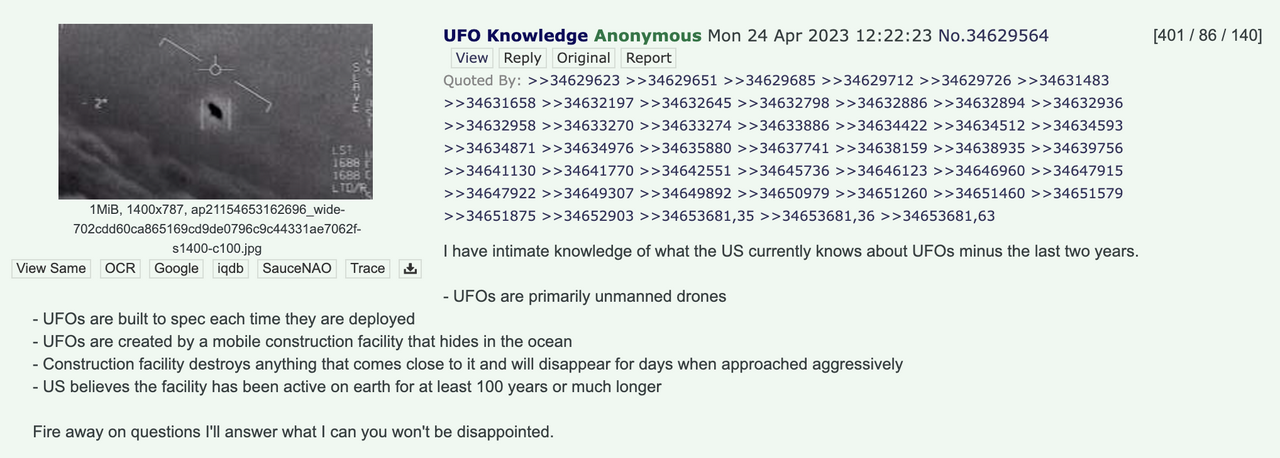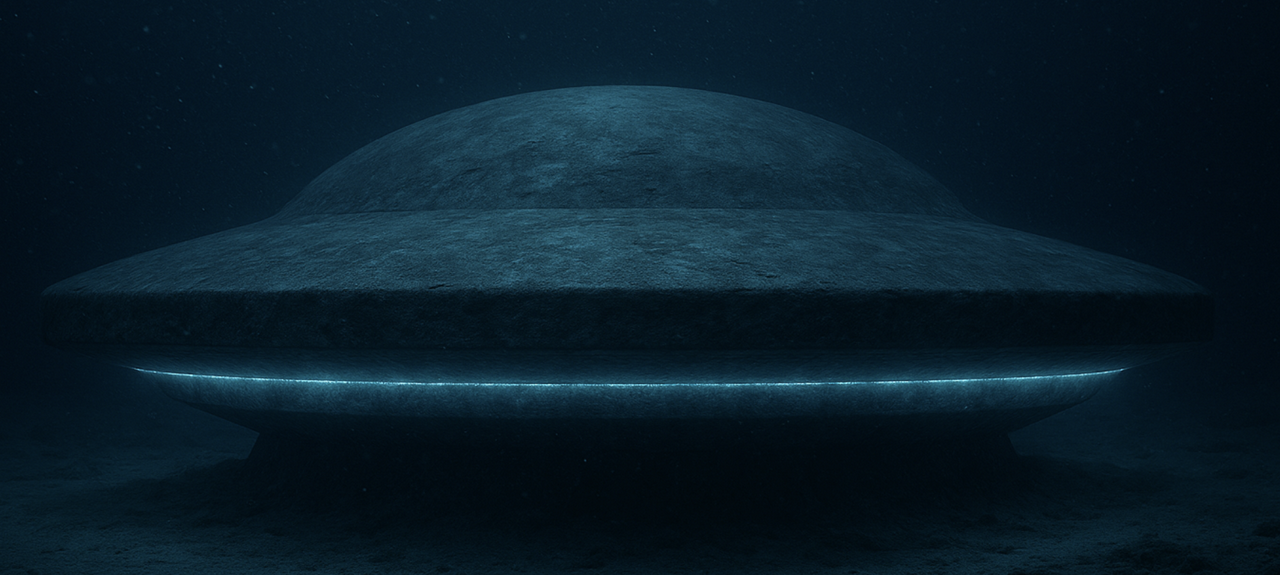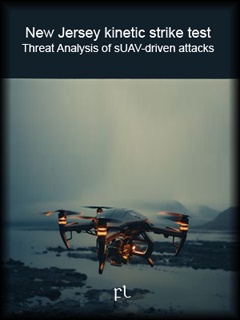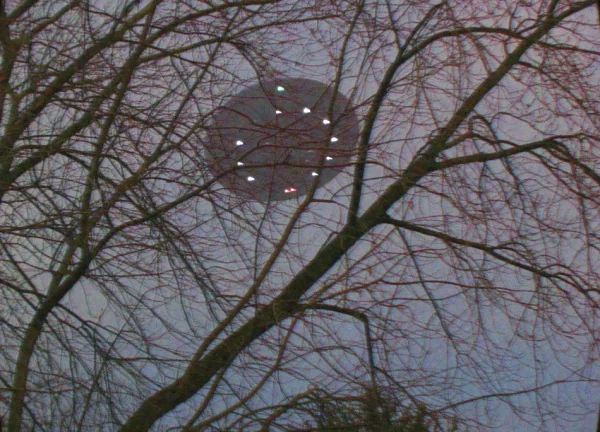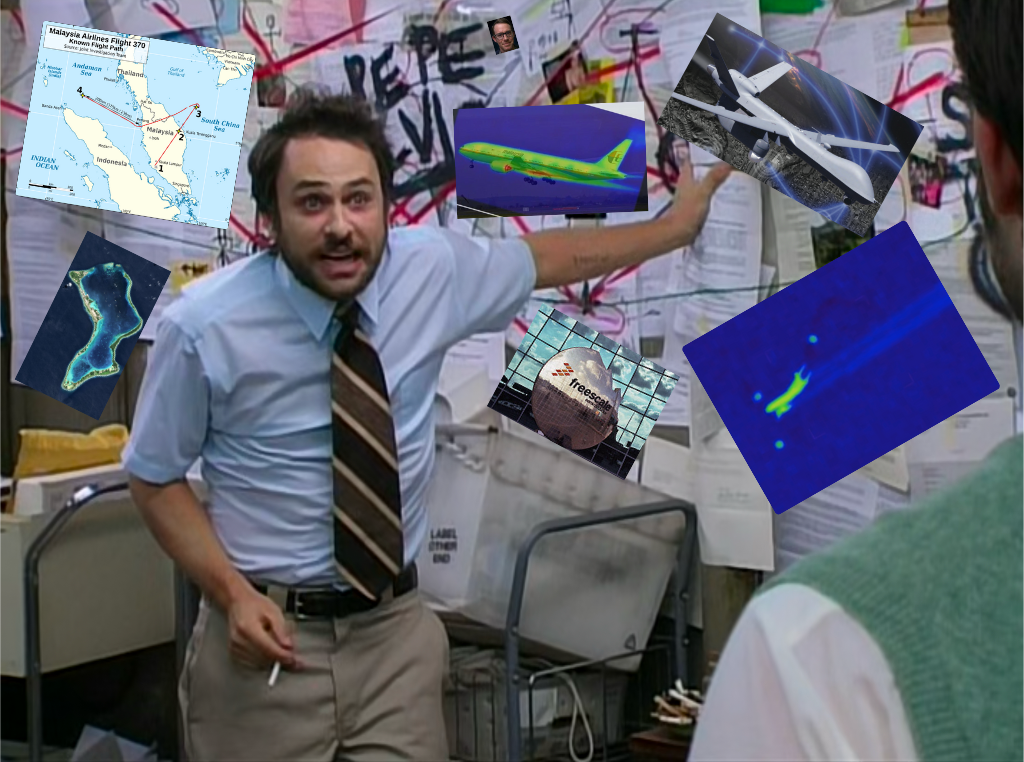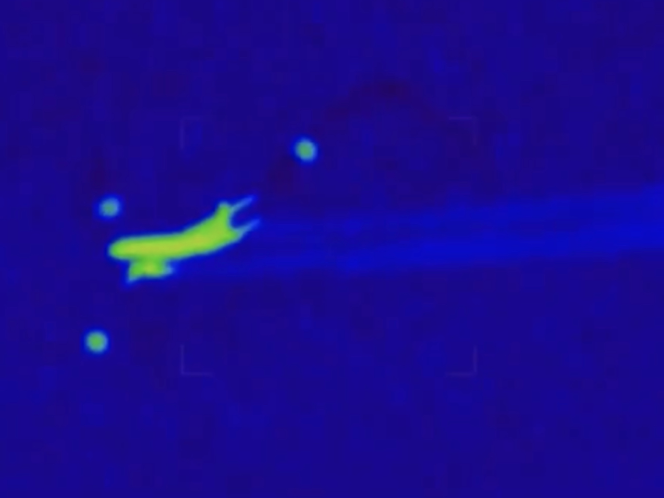The 25 Minutes That Disappeared: MH370, Diego Garcia, and the Hydrophone Data Gap

Introduction
In my previous post “Was Flight MH370 Teleported?”, I broke down two viral videos that appear to show MH370 being surrounded by glowing orbs before vanishing in a flash of light. Whether you believe those videos are real or fake, one thing is clear: they sparked renewed interest in alternative theories about what happened to Flight 370.
But here’s the thing: whether those videos are real or not, there should be physical evidence. An event violent enough to make a Boeing 777 disappear or crash would almost certainly generate acoustic signatures detectable by underwater sensors.

The Comprehensive Nuclear-Test-Ban Treaty Organization (CTBTO) operates a network of highly sensitive underwater hydrophones throughout the world's oceans. These hydrophones are designed to detect nuclear explosions, but they can also pick up aircraft impacts, underwater explosions, and other violent events.
So what did those hydrophones record on March 8, 2014?
The answer is complicated. They recorded something. But more importantly, they recorded nothing during a critical 25-minute window at the station closest to Diego Garcia.
The Players: CTBTO Hydrophone Stations
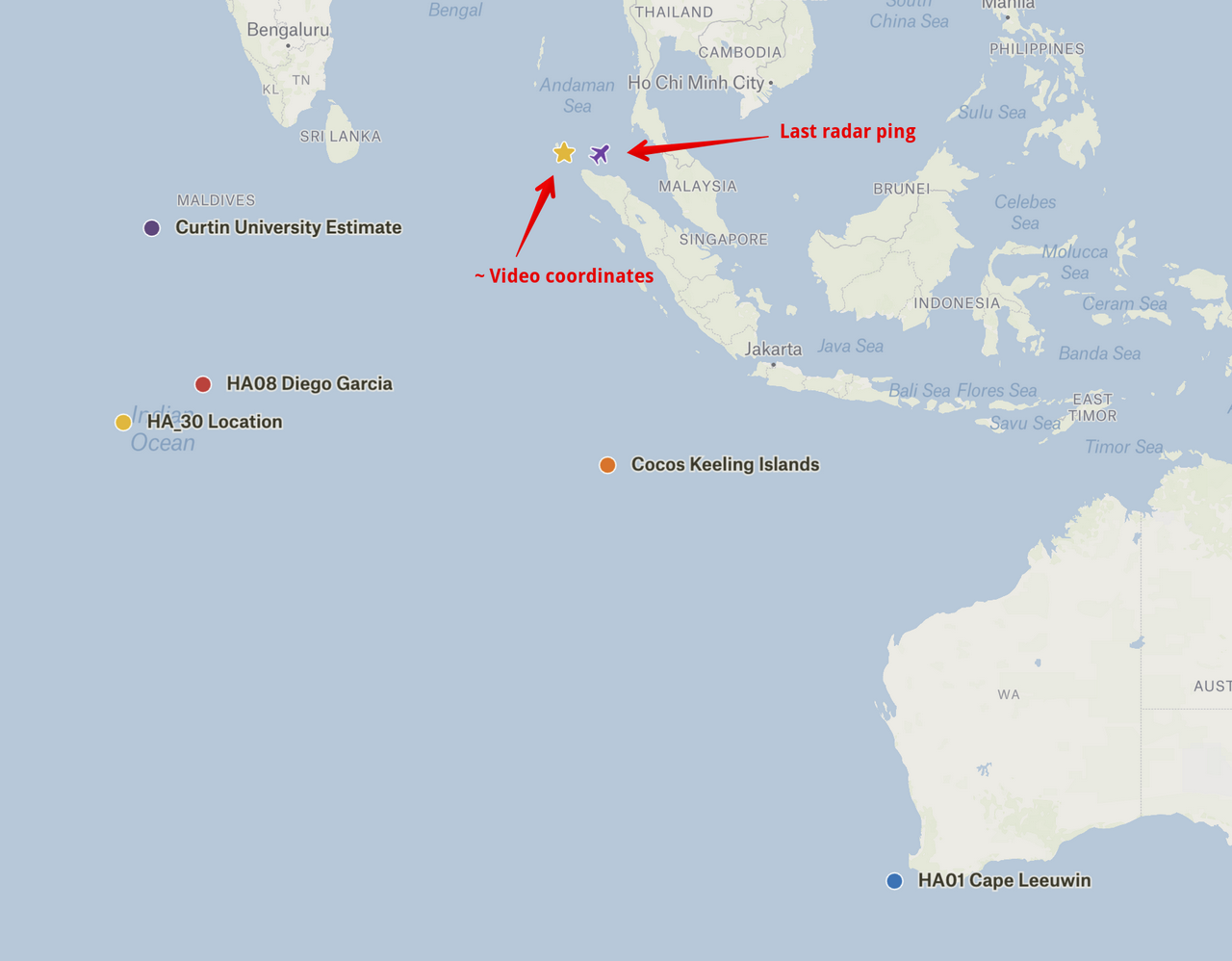
The CTBTO operates hydroacoustic monitoring stations throughout the Indian Ocean. Three are particularly relevant to MH370:
| Station | Location | Code |
|---|---|---|
| HA01 | Cape Leeuwin, Western Australia | H01W |
| HA08 | Diego Garcia, British Indian Ocean Territory | H08S/H08N |
| HA04 | Crozet Islands, France | H04S |
Each station consists of three hydrophones arranged in a triangular configuration, allowing researchers to determine both the bearing and approximate distance of acoustic events.
Diego Garcia is the location of HA08. It is also a remote coral atoll hosting a major U.S. military installation, Naval Support Facility Diego Garcia, which is shrouded in secrecy. The island has a 12,000-foot runway capable of handling any aircraft in the world.
Remember from Part 1: the coordinates embedded in the “satellite” video are approximately -8.834301, 93.19492, which places the supposed event south of the Nicobar Islands. Diego Garcia sits at approximately 7.3°S, 72.4°E. The distance between these two points is roughly 2,300 km.
Anomaly #1: The 25-Minute Data Gap
What Happened
At 03:07 UTC on March 8, 2014, all three hydrophones at the Diego Garcia station (HA08s) simultaneously stopped recording. They remained offline for exactly 25 minutes.
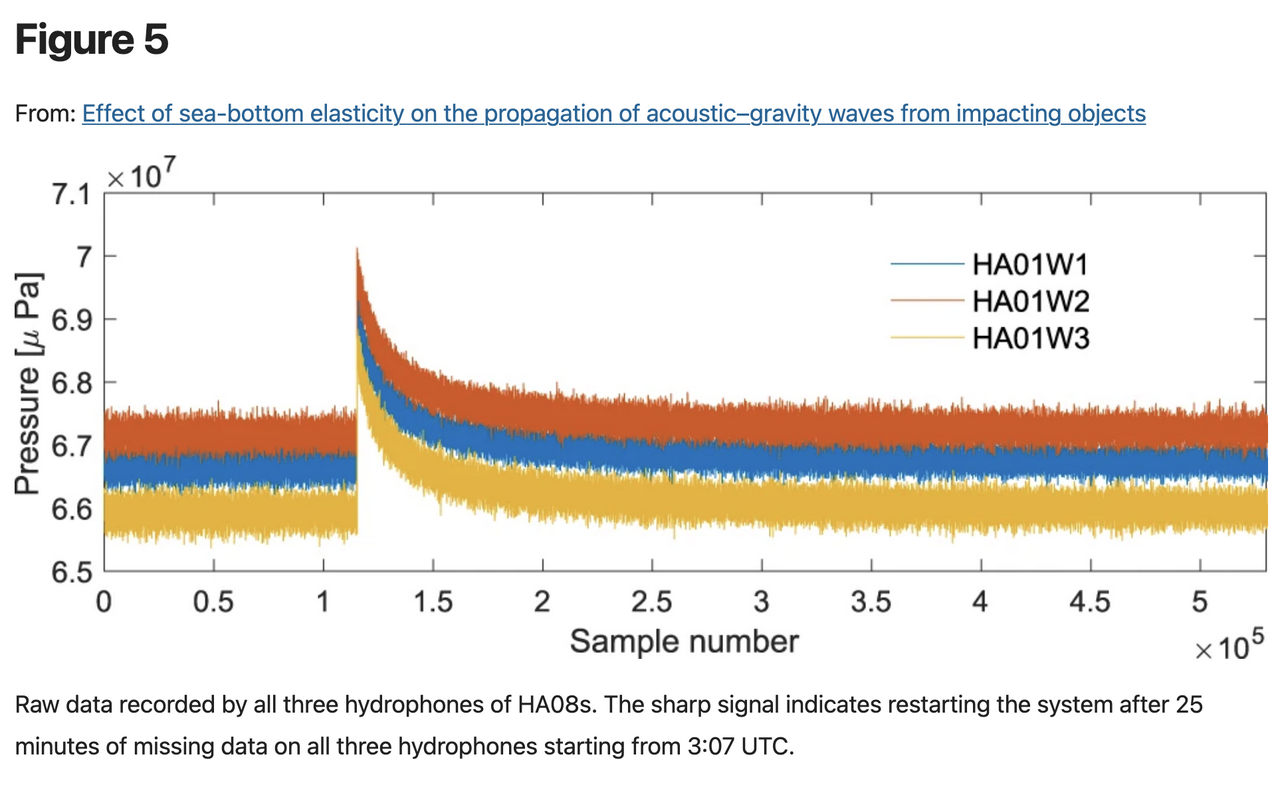
This is documented in a peer-reviewed paper by Dr. Usama Kadri of Cardiff University, published in Scientific Reports (Nature):
“A fifth signal appears at 3:07... This signal probably indicates restarting the system after it was shutdown for 25 minutes, i.e. there is missing data in these specific CTBTO recordings.”
Why This Matters
Dr. Kadri explicitly addresses the suspicious nature of this gap:
“Due to the sensitivity of the recorded data, it is unlikely that the three hydrophones on HA08s had a simultaneous technical failure and the reason behind the shut down is to-date unknown.”
He then offers a possible explanation:
“A violent nearby activity (including impact, explosion) could have resulted in a shutdown of the system.”
Let that sink in. A scientist publishing in one of the world's most prestigious journals is stating on the record that:
- A simultaneous failure of all three hydrophones is “unlikely”
- The shutdown remains “unexplained” by the CTBTO
- A violent nearby event, such as an aircraft impact or explosion, could cause such a shutdown
The Timeline and the Videos
The official narrative states that MH370’s final satellite communication occurred at 00:19 UTC on March 8, 2014. According to the mainstream account, the aircraft is believed to have crashed when it ran out of fuel over the southern Indian Ocean after turning and flying south.
Here is where it gets interesting. If the mainstream narrative is wrong and, instead of turning south, MH370 continued from its final reported coordinates toward Diego Garcia, then plotting its trajectory using the coordinates from the video (-8.834301, 93.19492) places the aircraft in that area sometime between 00:30 and 01:30 UTC. At a distance of about 2,100 km, the primary acoustic signal would reach Diego Garcia after roughly 10–25 minutes, depending on the propagation path: faster along the sea floor at about 3,350 m/s and slower through the water column at about 1,500 m/s. This means any acoustic signature from the event would have been recorded by Diego Garcia’s hydrophones sometime between 01:10 and 01:55 UTC, well before the 03:07 data gap.
| Time (UTC) | Event |
|---|---|
| 18:22, March 7 | Last radar contact with MH370 |
| 00:19, March 8 | Final satellite handshake (Final satellite handshake (crash estimated shortly after)) |
| ~00:30-01:30, March 8 | Estimated time at video coordinates (if direct flight from last radar) |
| 01:58, March 8 | Signal HA_32 detected at Diego Garcia (military bearing) |
| 03:07, March 8 | All three Diego Garcia hydrophones go offline |
| 03:32, March 8 | System comes back online |
| 03:47-03:55, March 8 | Three signals detected at nearly identical bearings (~170°) |
So what happened at 03:07? If the acoustic signal had already arrived and been recorded around 01:30-02:00 UTC, the data gap doesn't represent missing evidence – it represents evidence that may have been deleted. You don't preemptively shut down a recording system before incriminating data arrives. You shut it down after you realize what's been captured. The 25-minute window – just enough time to review and scrub recordings – looks less like a technical failure and more like a cleanup operation.
The data gap starts at 03:07 UTC. Right in the middle of that window.
Coincidence?



